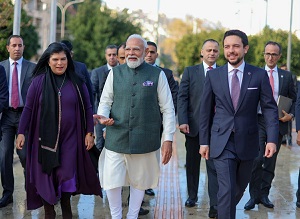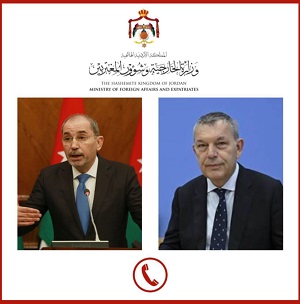Celebrating women’s flexibility and adaptability, in the time of COVID-19 - By Julia Angeli, The Jordan Times
Women have proven themselves adept at shifting and remaking and sometimes contorting themselves to fit the times, and that very flexibility and responsiveness has come to define success in our era. But if we want that to continue, we also need to re-engineer masculinity for the modern world.
In the world’s poorest communities, girls, and women bear the brunt of poverty and are also the key to overcoming it. During this pandemic, women have really risen to the occasion. Centuries of raising children have made women capable of doing several things at once; however, a year into the crisis and we need to recognize the unbearable toll this multitasking has had on women. The negative ramifications of COVID-19 will continue to demand more from us, and in turn, we must demand more of men to go beyond the set of traditional roles. Women need to be encouraged and supported in their provider roles through the leaning in of male participation in care and domestic work. Men have the opportunity here to enhance their relationships with partners, children and extended family and also create alternatives that can liberate and provide a new sense of fulfillment.
Every year, CARE Jordan conducts an annual needs assessment which identifies, analyses and tracks the needs, vulnerabilities and coping mechanisms of refugees and host communities in Jordan. While being in the 9th year, this year was the first of its kind following the pandemic and its effects and much of the data collection took place in a critical period of lockdowns, anxiety and uncertainty. And just like other crises, the pandemic is leaving long and deep effects, but in this case, many are less visible, at times harder to measure but just as important for us to understand and respond to.
One of these effects is women’s increased participation in the labour force as a result of loss of family income by other members in the family. Findings show that more women have started working and are contributing to the family’s income, especially as economic conditions worsen. Although women’s participation in the labor force remains low in Jordan, more women are working today to support their families and this trend is ever-increasing.
Findings from the annual assessment have also shown that female decision-making power has increased as more women have entered the employment market, which includes an increase in decision-making regarding family matters. Syrian women in focus group discussions also spoke of being more active in the public sphere than they were in Syria, engaging in more activities outside of their home, being able to move easily between governorates and feeling safer. In focus group discussions with Jordanian women, participants also observed this positive trend, with more women working, attending university, driving and participating in public life.
However, this new female expansion and participation also comes at a price. Female headed-households, who are in the absence of men in their family, may be experiencing an increase in responsibility and decision-making power, however, this is combined with high levels of psychosocial distress. In many instances, women have been thrust into the provider role in a way that most had not previously experienced.
Additionally, female respondents’ household duties, already a hurdle to their full participation in society, have increased since the crisis began, mainly due to more hours spent in additional cleaning and schooling. The gender division of the main household duties was highly inequitable before the crisis, with most women reporting being totally responsible for cleaning, childcare, cooking and schooling. This reality has persisted and increased, with the number of women spending three to eight hours a day on household tasks, nearly doubling, whilst men reported little change.
During these difficult times, we need to build on the potential for women’s economic empowerment to help households recover and rebuild; including advancing policies and initiatives that increase women’s participation in the labour market; giving them the chance to establish and grow their own businesses by increasing financial inclusion, financial literacy, and marketing support.
Women continue to display tremendous strength and resilience. Though the role of breadwinner is new and unexpected for many, women have quickly adapted, are confident in their ability to lead and provide for their families, and are eager to do so. What they need now is both support and resources to lessen their dependency on aid and to access livelihoods to provide for themselves and their families. They also need men to take on new roles in the private sphere, in much the same way that they have absorbed new responsibilities in the public one.
Julia Angeli is a gender adviser at CARE Jordan




